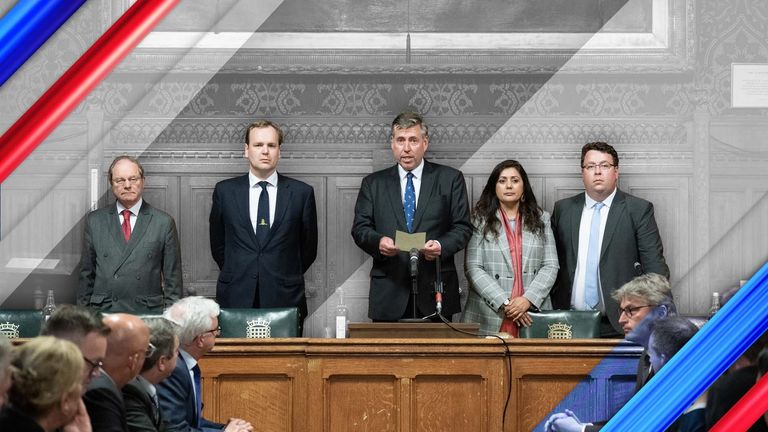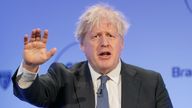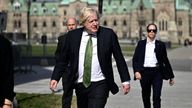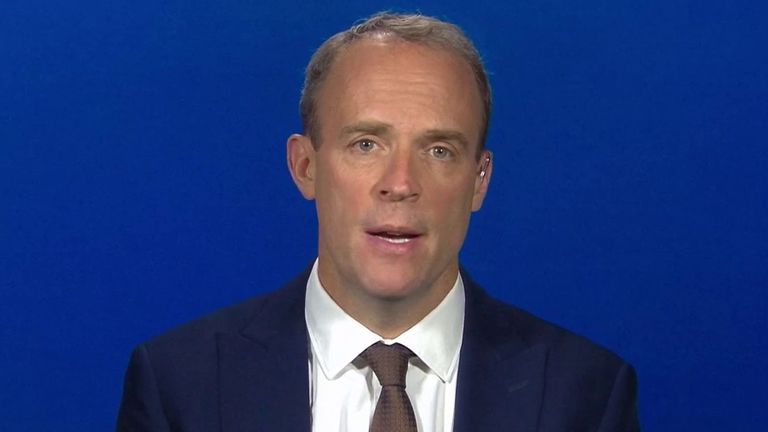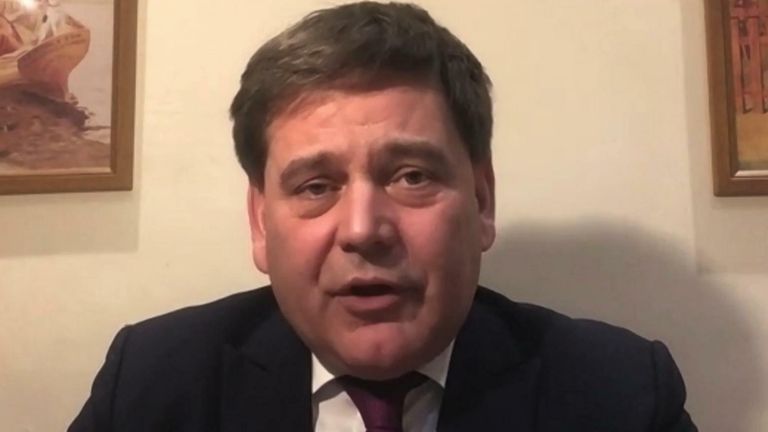How could Boris Johnson be ousted as PM? The 1922 Committee election could be key
Boris Johnson has remained defiant in the face of by-election defeats and cabinet resignations, but could a ballot for seats on a Conservative backbench committee be what brings about his downfall?
Wednesday 6 July 2022 12:57, UK
Boris Johnson has insisted he will be staying in Number 10 despite a string of high-level resignations over the Chris Pincher scandal.
But his determination to remain in office may not be enough to secure his future, as those in his party who want him gone appear to have their next move mapped out.
Politics Hub: More resignations to start the day as pressure mounts on PM - live updates
It all comes down to the top tier of the 1922 Committee - the organisation representing Tory backbenchers in the Commons.
Its ruling executive is made up of 18 members in total, including six officers - a chairman, two vice chairs, two executive secretaries and a treasurer.
And they hold an awful lot of power in the party - especially when it comes to the ousting of leaders.
The chair of the '22, as it is known - currently Sir Graham Brady - tends to be the one who hits the headlines, as they're the only person who knows how many letters of no confidence in the PM have been submitted by backbenchers.
They then have the task of announcing when the figure crosses the threshold to trigger a confidence ballot, as Mr Johnson only knows too well.
The PM won such a vote in early June, and under the current rules of the committee, he cannot be challenged again for another 12 months.
But here is the rub - the executive committee can change the rules if it wants to. And it will meet to discuss the prospect at 5pm tonight (Wednesday).
Read more: Beth Rigby on why things could get uglier still for Boris Johnson
Is this likely to happen?
It has happened before.
After a run of losses in parliament over her Brexit deal, the committee agreed to change them to allow a challenge to Theresa May's leadership six months after she won a confidence vote.
However, it never got to that stage. Sir Graham is understood to have told her a decision had been made on a rule change, but before he got to the detail, she named the date for her departure.
In recent weeks, existing members of the executive have been lukewarm on the idea of changing the rules - fearful of the precedent it would set for future leaders.
But that should not reassure Mr Johnson, because the personnel on that executive is about to change.
Each time there is a Queen's Speech and a new session of parliament begins, the top roles on the '22 go up for re-election - meaning a vote is due.
Sir Graham is expected to announce the opening of nominations later today, with the first meeting to swear in the new executive next Wednesday and the first opportunity to change the rules the week after that.
That means if rules were changed to allow a second vote of confidence in the prime minister, it could feasibly happen the day before MPs leave Westminster for their summer break on 21 July.
Tory MP Andrew Bridgen, who is an outspoken critic of the PM, has already said he will be a candidate, campaigning on a manifesto to change the rules to allow another confidence vote into Mr Johnson.
It is likely more potential executive members may follow the same route.
Read more: The frontrunners to replace Boris Johnson
Can the PM do anything about it?
There have been rumours No 10 might try to seek out some loyalists to put themselves forward too, to be sure that critics of the current leadership don't hold the balance of power.
But the executive is only voted for by backbench MPs, not those on the government payroll.
As many as three quarters of backbenchers may have voted no confidence last time round, making it unlikely that strategy would pay off.
The election of an executive committee of an obscure backbench organisation may seem like uninteresting internal admin, but it could have big implications for the leadership of the Conservative Party and, in turn, the leadership of the country.
